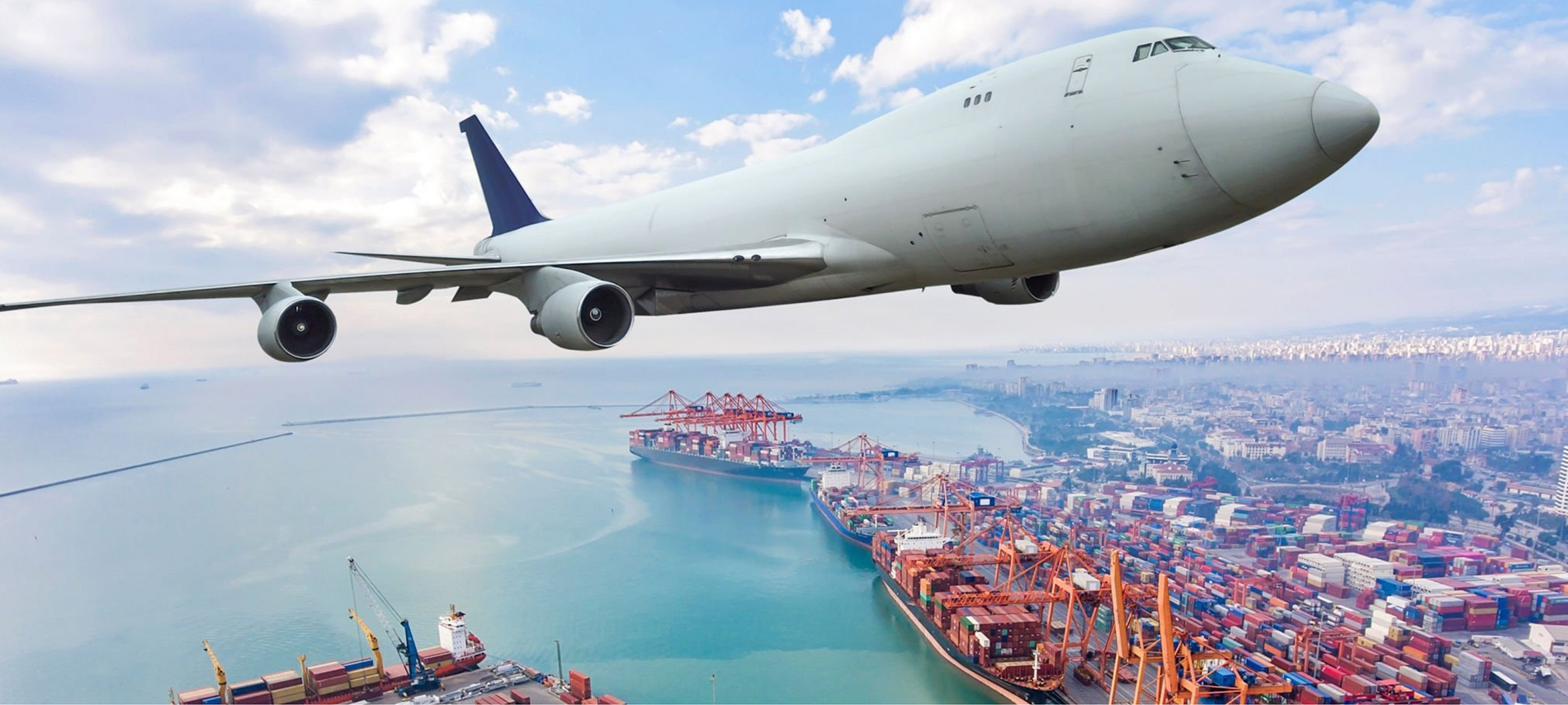
Incoterm
Navigating through the intricacies of Incoterms can be complex. MWT Sourcing accompanies you for seamless transactions.
Incoterms, or International Commercial Terms, are a set of rules established by the International Chamber of Commerce. They standardize the terms of commercial transactions worldwide, thereby clarifying the responsibilities of buyers and sellers regarding the delivery of goods, transfer of risks, and cost coverage. They enable the simplification of international business negotiations by providing a common language to stakeholders from different jurisdictions. At MWT Sourcing, we specialize in demystifying Incoterms for our clients, ensuring smooth navigation through the complexities of international trade.

Understanding and advisory
Our first step is to understand your specific needs. At MWT Sourcing, we offer detailed consultations to identify the Incoterms that best suit your business strategy. Our experts provide advice on each Incoterm, helping you navigate through their nuances to find the one that optimizes your international transactions.

Selection of the right Incoterm
Selecting the appropriate Incoterm is essential for the success of your international trade. We assist you in choosing the Incoterm that minimizes your risks and costs while maximizing the clarity of each party’s obligations. Whether it’s EXW, FOB, CIF, or DDP, MWT Sourcing ensures that your choice aligns with your business and logistical interests.

Risk Management and conformity
Conformity and risk management are at the core of our support. MWT Sourcing assesses the risks associated with each Incoterm and implements strategies to mitigate them. From customs compliance to insurance management, we ensure that your business is protected at every stage of the export or import process.

Logistical Support
Our support doesn’t end with the selection of the Incoterm. MWT Sourcing provides you with complete logistical support, ensuring that the chosen Incoterm is applied seamlessly. From coordinating transportation to managing shipping documents, our team ensures that your goods reach their final destination on time and in good condition.
A general overview of Incoterms
| Country, City, Destination | Transport | Country, City, Destination | |||||||||
|---|---|---|---|---|---|---|---|---|---|---|---|
 Packaging and Inspection Packaging and Inspection |
 Charging Charging |
 Transport Transport |
 Customs Export Customs Export |
 Charging Charging |
 Freight transport Freight transport |
 Unloading Unloading |
 Customs Import Customs Import |
 Transport to destination Transport to destination |
 Unloading Unloading |
||
|
EX WORKS — When the goods are made available to the buyer at the seller's premises or at another designated location (factories, warehouses, etc.). The seller does not need to load the goods onto a supply vehicle.
EXW
|
|||||||||||
|
FREE CARRIER — The seller delivers the goods to the carrier chosen by the buyer. It is recommended that both parties explicitly specify the point of delivery, as the risk is then transferred to the buyer at that point.
FCA
|
|||||||||||
|
The seller delivers the goods alongside the vessel (e.g. on a quay or barge) designated by the buyer to the port of shipment. When the goods are alongside the ship, the risk of loss or damage to the goods is transferred to the buyer. Consequently, the buyer bears all costs and risks.
FAS
|
|||||||||||
|
Free On Board — The seller delivers the goods to the vessel nominated by the buyer at the port of shipment. Once the goods are on the vessel, the risk of loss or damage to the goods passes to the buyer. All costs and risks are transferred to the buyer.
FOB
|
|||||||||||
|
COST, INSURANCE AND FREIGHT — The seller delivers the goods on board the ship at the port of shipment. The seller shall also contract for and pay the costs and freight necessary to deliver the goods to the port of destination nominated by the buyer. The risk of loss of or damage to the goods passes to the buyer when the goods are on board the vessel.
CIF
|
|||||||||||
|
COST AND FREIGHT — The seller delivers the goods to the port of destination. The seller contracts for and pays the costs and freight necessary to deliver the goods to the port of destination designated by the buyer. The risk of loss of or damage to the goods passes to the buyer when the goods are on board the vessel.
CFR
|
|||||||||||
|
CARRIAGE PAID TO — The seller delivers the goods to the carrier abroad, without insurance. The seller must contract and pay for the transport costs required to bring the goods to the agreed destination.
CPT
|
|||||||||||
|
CARRIAGE AND INSURANCE PAID TO — Similar to CPT, the only difference is that the seller is responsible for insuring transport in the event of goods being lost or damaged in transit.
CIP
|
|||||||||||
|
DELIVERED AT PLACE — The seller delivers the goods, unloaded, to the buyer at the agreed place in the country of destination. The buyer is responsible for unloading, import customs clearance and the risks inherent in transporting the goods to the named destination.
DAP
|
|||||||||||
|
DELIVERED AT PLACE UNLOADED — Formerly known as ‘DAT’ (Delivered at Terminal), the seller delivers the unloaded goods to the agreed destination (warehouse, terminal, etc.). The seller must check that the place where he is to deliver the goods is a place where he can unload the goods. The seller assumes all risks associated with the transport and unloading of the goods.
DPU
|
|||||||||||
|
DELIVERED DUTY PAID — The seller delivers the goods to the buyer, cleared for import and ready to be unloaded at the named destination. The goods must therefore be cleared by the seller for export and import and comply with all customs formalities. The seller assumes all shipping risks until delivery at destination.
DDP
|
|||||||||||
EXW — EX WORKS
When the goods are made available to the buyer at the seller’s premises or at another designated location (factories, warehouses, etc.). The seller does not need to load the goods onto a supply vehicle.
FCA — FREE CARRIER
The seller delivers the goods to the carrier chosen by the buyer. It is recommended that both parties explicitly specify the point of delivery, as the risk is then transferred to the buyer at that point.
FAS — FREE ALONGSIDE SHIP
The seller delivers the goods alongside the vessel (e.g. on a quay or barge) designated by the buyer to the port of shipment. When the goods are alongside the ship, the risk of loss or damage to the goods is transferred to the buyer. Consequently, the buyer bears all costs and risks.
FOB — Free On Board
The seller delivers the goods to the vessel nominated by the buyer at the port of shipment. Once the goods are on the vessel, the risk of loss or damage to the goods passes to the buyer. All costs and risks are transferred to the buyer.
CIF — COST, INSURANCE AND FREIGHT
The seller delivers the goods on board the ship at the port of shipment. The seller shall also contract for and pay the costs and freight necessary to deliver the goods to the port of destination nominated by the buyer. The risk of loss of or damage to the goods passes to the buyer when the goods are on board the vessel.
CFR — COST AND FREIGHT
The seller delivers the goods to the port of destination. The seller contracts for and pays the costs and freight necessary to deliver the goods to the port of destination designated by the buyer. The risk of loss of or damage to the goods passes to the buyer when the goods are on board the vessel.
CPT — CARRIAGE PAID TO
The seller delivers the goods to the carrier abroad, without insurance. The seller must contract and pay for the transport costs required to bring the goods to the agreed destination.
CIP — CARRIAGE AND INSURANCE PAID TO
Similar to CPT, the only difference is that the seller is responsible for insuring transport in the event of goods being lost or damaged in transit.
DAP — DELIVERED AT PLACE
The seller delivers the goods, unloaded, to the buyer at the agreed place in the country of destination. The buyer is responsible for unloading, import customs clearance and the risks inherent in transporting the goods to the named destination.
DPU — DELIVERED AT PLACE UNLOADED
Formerly known as ‘DAT’ (Delivered at Terminal), the seller delivers the unloaded goods to the agreed destination (warehouse, terminal, etc.). The seller must check that the place where he is to deliver the goods is a place where he can unload the goods. The seller assumes all risks associated with the transport and unloading of the goods.
DDP — DELIVERED DUTY PAID
The seller delivers the goods to the buyer, cleared for import and ready for unloading at the named destination. The goods must therefore be cleared by the seller for export and import and comply with all customs formalities. The seller assumes all shipping risks until delivery at destination.
FAQ: Incoterms
What is an Incoterm and how does it define the allocation of costs and risks between buyer and seller?
Incoterms (International Commercial Terms) are rules established by the International Chamber of Commerce that define the responsibilities of buyers and sellers in international transactions. They regulate the transportation of goods, transportation costs, insurance, unloading, and determine the point of transfer of risks of the goods from the seller to the buyer. Each Incoterm, such as FOB (Free On Board), CIF (Cost, Insurance, and Freight), or DDP (Delivered Duty Paid), specifies a different set of commercial conditions.
How do you choose the right Incoterm for an international transaction?
The choice of the most suitable Incoterm depends on several factors, such as the mode of transport (maritime, air, road), the agreed place of delivery, customs obligations, and who, the buyer or the seller, assumes the costs and risks. For example, EXW (Ex Works) leaves the majority of costs and risks to the buyer, while DDP (Delivered Duty Paid) imposes the majority of the charges on the seller. MWT Sourcing helps you understand each Incoterm to determine which best protects your business and legal interests.
What are the logistical implications of Incoterms on international transportation?
Incoterms directly influence logistical planning by defining who, the buyer or the seller, organizes transportation, pays freight, insurance, and manages customs formalities. For example, under the FCA (Free Carrier) terms, the seller is responsible for delivering the goods to the agreed carrier, while under CPT (Carriage Paid To), the seller must also pay transportation costs to the agreed destination. Understanding these obligations enables effective management of the international logistics chain.
How do Incoterms affect international sales and purchase contracts?
Incoterms are an essential component of international sales and purchase contracts, defining the rules and legal, financial, and commercial obligations for the seller and the buyer. These terms clarify the point of transfer of risks and costs of the goods from the shipper to the consignee, including transportation, insurance, unloading costs, and customs formalities. By specifying whether the shipment is “Free Alongside Ship” (FAS), “Delivered Duty Paid” (DDP), “Carriage Paid To” (CPT), or another agreed Incoterm, buyers and sellers clearly articulate responsibilities for freight, loading, unloading, insurance, and customs formalities, thus minimizing the risks of disputes and misunderstandings.
How do Incoterms 2020 differ from previous versions?
Incoterms 2020 introduced minor updates to clarify and adapt the rules to modern business practices. A notable change is in the FCA term, now allowing the buyer and seller to agree that the carrier issues a bill of lading with an “on board” notation to the seller, a common practice in maritime trade. These updates aim to increase clarity and ease of use of Incoterms, ensuring they remain relevant in the current international business context.
What is the impact of Incoterms on import and export costs?
Incoterms have a significant impact on import and export costs by determining who pays for transportation, insurance, customs clearance, and other associated fees. For example, under the CIF (Cost, Insurance, and Freight) term, the seller is responsible for covering the costs of freight and insurance to the destination port. MWT Sourcing helps you understand how each Incoterm allocates these costs to help you plan and budget for your international business operations more effectively.
Can Incoterm conditions be negotiated in an international commercial contract?
Absolutely. Incoterms serve as a standardized yet flexible framework in international trade, allowing buyers and sellers to negotiate specific terms that better suit their logistical, transportation, and risk requirements. Whether for maritime, air, or land shipment, parties can agree on specific terms such as “Cost, Insurance, and Freight” (CIF) for maritime transportation or “Delivered at Place” (DAP) for precise delivery modalities, thus adapting the contract to their needs. It is essential that these arrangements are meticulously documented and agreed upon in the sales contract, ensuring clear mutual understanding and avoiding misunderstandings or conflicts regarding transportation, insurance, unloading costs, and customs obligations.


